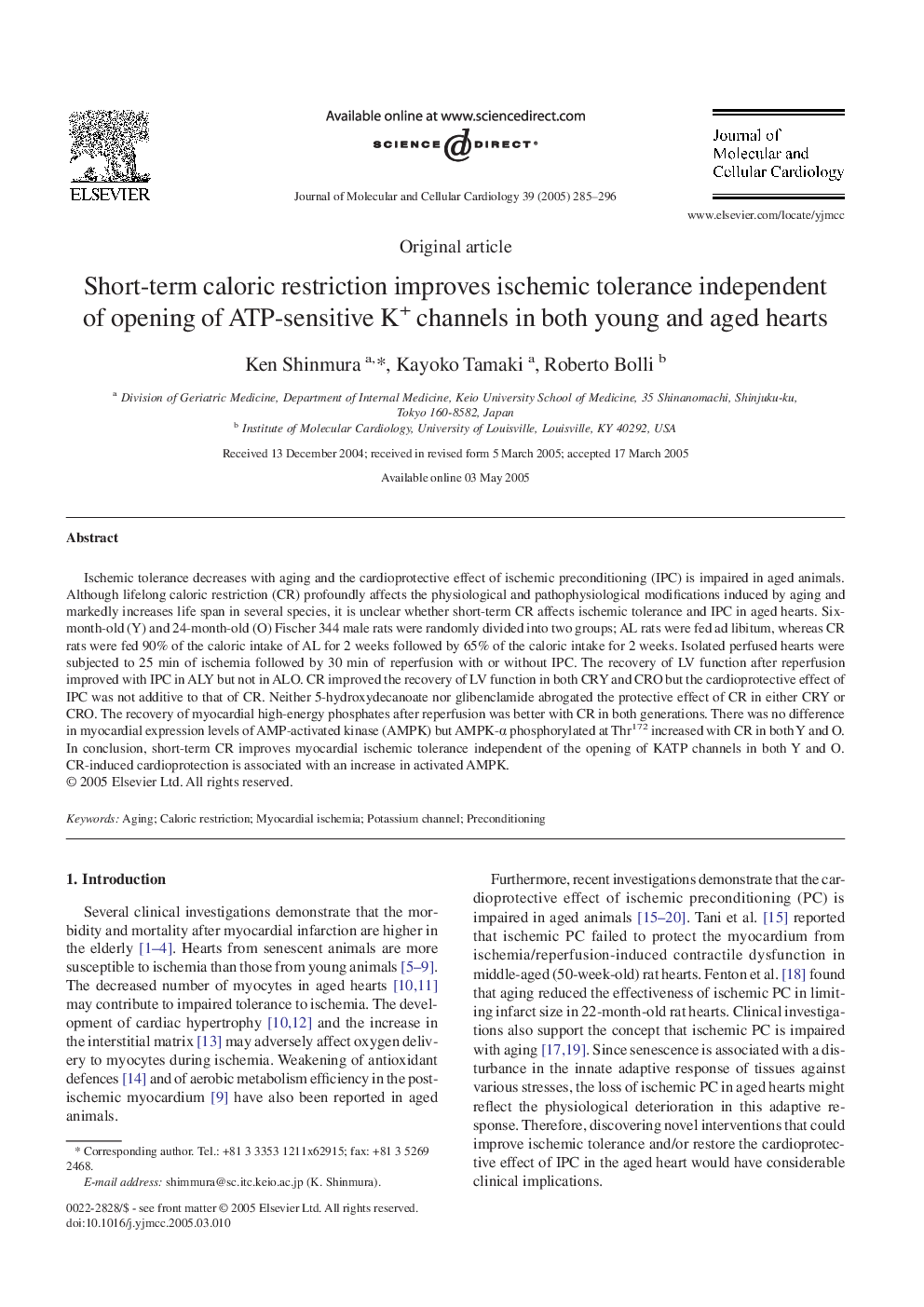| Article ID | Journal | Published Year | Pages | File Type |
|---|---|---|---|---|
| 10954351 | Journal of Molecular and Cellular Cardiology | 2005 | 12 Pages |
Abstract
Ischemic tolerance decreases with aging and the cardioprotective effect of ischemic preconditioning (IPC) is impaired in aged animals. Although lifelong caloric restriction (CR) profoundly affects the physiological and pathophysiological modifications induced by aging and markedly increases life span in several species, it is unclear whether short-term CR affects ischemic tolerance and IPC in aged hearts. Six-month-old (Y) and 24-month-old (O) Fischer 344 male rats were randomly divided into two groups; AL rats were fed ad libitum, whereas CR rats were fed 90% of the caloric intake of AL for 2 weeks followed by 65% of the caloric intake for 2 weeks. Isolated perfused hearts were subjected to 25 min of ischemia followed by 30 min of reperfusion with or without IPC. The recovery of LV function after reperfusion improved with IPC in ALY but not in ALO. CR improved the recovery of LV function in both CRY and CRO but the cardioprotective effect of IPC was not additive to that of CR. Neither 5-hydroxydecanoate nor glibenclamide abrogated the protective effect of CR in either CRY or CRO. The recovery of myocardial high-energy phosphates after reperfusion was better with CR in both generations. There was no difference in myocardial expression levels of AMP-activated kinase (AMPK) but AMPK-α phosphorylated at Thr172 increased with CR in both Y and O. In conclusion, short-term CR improves myocardial ischemic tolerance independent of the opening of KATP channels in both Y and O. CR-induced cardioprotection is associated with an increase in activated AMPK.
Related Topics
Life Sciences
Biochemistry, Genetics and Molecular Biology
Cell Biology
Authors
Ken Shinmura, Kayoko Tamaki, Roberto Bolli,
